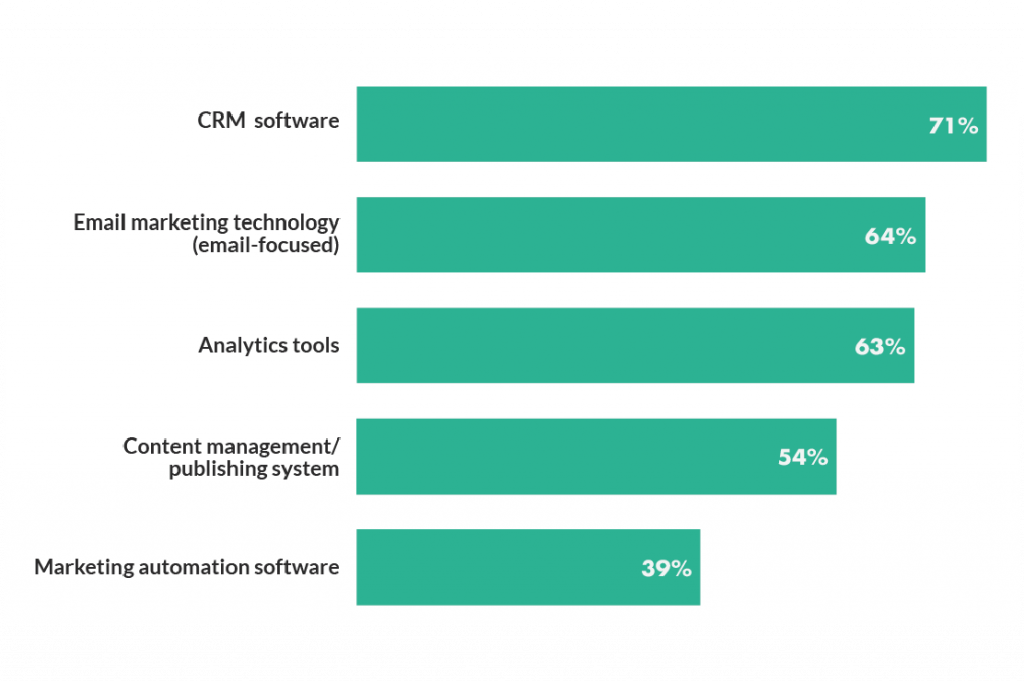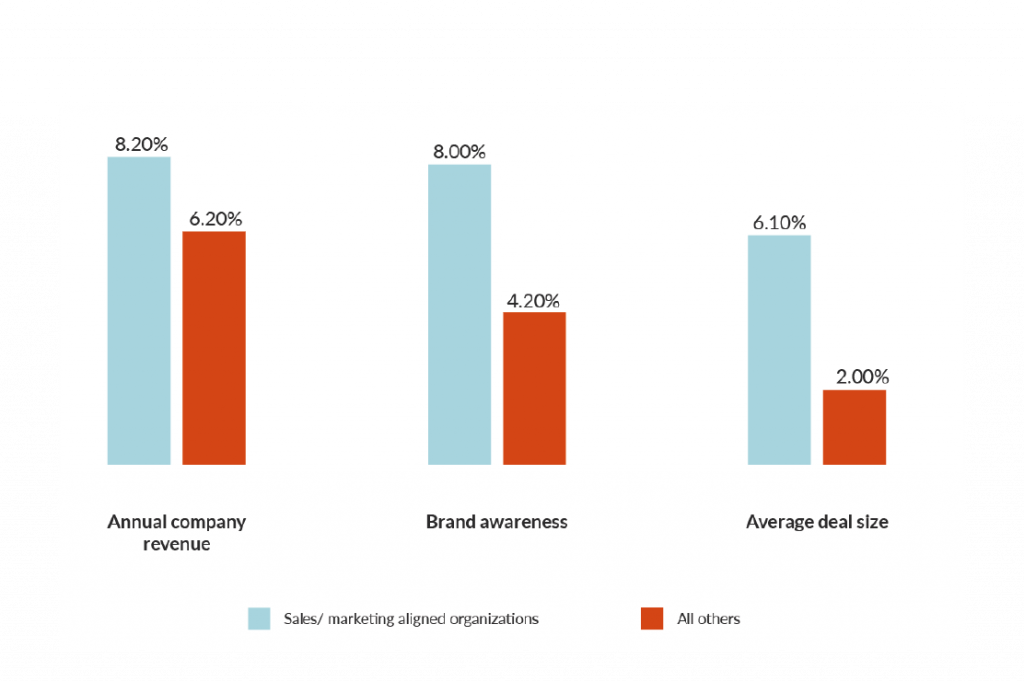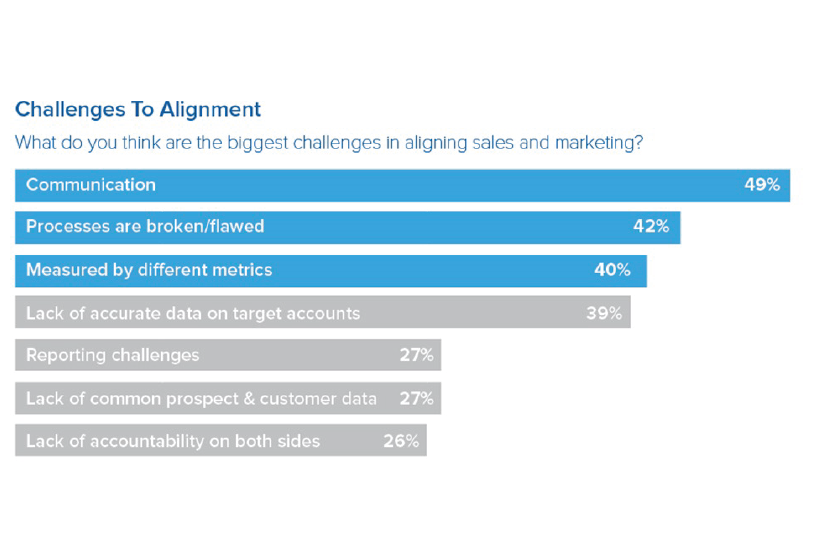How CRM Software Can Help You Align Sales and Marketing
Let’s learn in more detail why the Sales and Marketing alignment is so important and how to achieve it with the help of CRM software.

Sales and marketing departments do a very important job in every organization. To put it simply, they both work on acquiring new customers and selling the product to the end-user. The marketing team usually tries to find and engage the target market with their messages and then identify leads, while the sales team does the execution part and closes the sale.
It’s easy to see why these two teams should work in harmony. They’re basically working on the same objective, but cover different parts of the process. However, their jobs are largely interconnected and the intelligence they can provide for each other is very valuable for both parties.
This especially goes for organizations that use CRM software. As CRM is very powerful at collecting and processing crucial customer data, it can provide both teams with a number of benefits. Especially if they work together. And there are stats that support this – research shows that organizations with tightly aligned marketing and sales enjoy 36% higher retention rates and 38% higher sales win rates.
Let’s see in more detail why this alignment is so important and how to achieve it with the help of CRM software.
The Most Popular Technologies Used By Companies With High Sales And Marketing Alignment

Source: Super Office
Establishing a service-level agreement
Before they start working on a project, the marketing and sales teams should agree on some main points concerning key procedures, targets, and delegation of tasks and duties. So creating an internal service-level agreement (SLA) is always a good idea.
Both sides should know what to expect from each other and set priorities. For instance, the marketing department can guarantee a certain number of leads per month, while the sales team can guarantee a certain number of sales or a specific sales win rate. SLA also represents a first step into creating a comprehensive sales-marketing strategy that should be one of the pillars of any business.
Collecting and sharing important data
As it was mentioned, probably the biggest benefit of using a CRM system is getting a ton of useful and relevant customer info. These data are absolutely essential for both marketing and sales, and CRM enables the teams to access them from a single dashboard.
Once they have the data, they can help each other further interpret it and use it to their advantage. Sharing knowledge and feedback between departments is crucial in order to maximize the potential of sales and marketing. Let’s see how this works.
Lead qualification
In general, the marketing team should supply the sales team with new leads, based on how users interact with content and messages. These leads are especially valuable in B2B organizations where the number of leads and clients is usually quite limited.
CRM software helps a lot in this process. Firstly, it collects the customer behavior data from your website and across different social networks. Then the marketing team should decide which leads are good enough to be forwarded to sales, and this is rarely done manually, also thanks to CRM. CRM software can automatically quantify the quality of the lead, prioritize it and then notify the sales department about it.
CRM analyzes all types of online behavior of all your visitors, from browse history to the type of content they choose to consume and the time they spend on particular pages. According to pre-set parameters, CRM then calculates how probable it is that a specific visitor converts, and notifies the sales rep if this probability has exceeded a certain threshold.
This dramatically speeds up the whole process and makes it much more data-driven. You don’t rely on any manual work and you don’t have to worry about any human errors.
Personalising your outreach
Sales reps can also access the entire customer journey of every single lead and check why they’re specified as leads. They can find out what the user is interested in, thanks to the info about their browsing history on your website. They can focus on certain products or a line of products they know the user has viewed. In general, they can use loads of different data to find out more about a specific lead.
This gives them a chance to plan a strategic approach to every lead. Especially if the user went so far as to fill in the contact form and/or subscribe to a newsletter. Then the sales rep will know something about the user’s demographics, location, or position in a company.
As a result, a sales rep can do a fully personalized sales call, address the customer’s particular issues, and offer the right solutions at the right time. The way they’re engaging with your marketing content and messages fully informs all these decisions.
And when it comes to timing, CRM can help with this as well. For instance, you can set triggers that will notify the sales rep right away if a user abandons a cart with some products in it. Sending a follow-up email immediately or recommending similar products are generally great tactics in this case. CRM can even automatically reach out to a lead if needed, wasting absolutely no time in the process.
Collecting and storing info from the field
This river of useful info also flows the other way around – from sales to marketing. Sales reps collect valuable info from the field from the customers and prospects themselves. Sometimes, personal communication with the customers can be more insightful than any amount of online behavior data.
Salespeople can bring to light the customers’ most common concerns and pain points in relation to your product or a similar product made by the competition. Or they can tell you what helped them the most to close a sale. All this information will supply your marketing team with critical info they can use to improve their marketing messages.
This will also help your marketing team devise a better content strategy. For instance, if you lack topics for future blog posts, use the intelligence from the sales team about the most frequent questions they’re asked by potential customers. Then write blog posts that answer these questions to attract more visitors and deliver more high-quality leads to sales.
What CRM brings to the table here is a single, central database where all the sales info from the field will be stored, categorized, and made available for the marketing team to use it.
Improving communication between departments
We’ve already seen that CRM helps improve outward communication with clients and prospects. But it also makes communication inside your organization much easier.
Too often, business communication within a company is scattered across too many different channels and groups. This causes confusion and creates unnecessary setbacks. Admittedly, most of these conversations, especially those in chat groups, aren’t too relevant and can often be genuinely forgotten without consequences.
But sometimes, members of the teams will discuss some very important ideas or try to settle some very important issues in one of their group chats. Locating these specific discussions a few months later can be a nightmare. Especially those between teams that do different jobs and therefore probably use different tools and apps to delegate tasks and communicate.
So instead of searching aimlessly through chat history on a dozen of platforms, you can use CRM to integrate and consolidate communication between teams and inside the teams. The history of the communication will be stored all in one place, easily accessible and searchable at all times.
Further data analysis
Finally, CRM provides companies with detailed reports about their sales and marketing efforts. Once a month or two, both teams should meet together and analyze these reports in detail.
The effects of using CRM inside an organization will depend on many factors, and one of them is the initial calibration. At these meetings, it should be reviewed whether parameters are set in such a way to slow the business down or hurt its efficiency.
For instance, there could be a problem with the performance of the sales team – suppose their sales win rate may be too low. But this doesn’t necessarily point to the issues in the sales team. It could simply be that the bar for defining something as a “qualified lead” is too low. Then these low-quality leads are being handed over to the sales reps who can’t really do much to convince them to buy.
This means that, for instance, getting more salespeople or new salespeople won’t do the trick. Instead, you need to look into the sales department report to detect the exact kind of leads that are turning out to be less reliable than the marketing team thought they would be. Of course, this sort of insight is provided by CRM.
After you’ve identified the problem, change the parameters and raise the bar for “qualified leads”. This way you won’t be wasting your sales reps’ precious time on people that are highly unlikely to convert. In general, CRM reports can be remarkably helpful if you wish to align the efforts of the two teams and maximize their output.
Discover How SpotlerCRM Can Help
Conclusion
All in all, bringing your marketing and sales teams closer and ensuring they work well together is crucial for any company. The info that one department collects while simply doing their job can be of great value to the other department. So if they fail to cooperate and stay isolated, they’ll make a lot of mistakes and miss out on a lot of opportunities.
CRM software can help you avoid this problem. CRM is a tool that stores customer info, performance analyses, campaign results, as well as outcomes and details of sales calls. It also improves inter-department communication, automates workflows, and speeds up many processes. If you wish to better align your sales and marketing, CRM should be your tool of choice.
Really Simple Systems is now Spotler CRM
The same great technology, a CRM platform that is focused on the needs of B2B marketers, provided by the same great team, at a great price!

